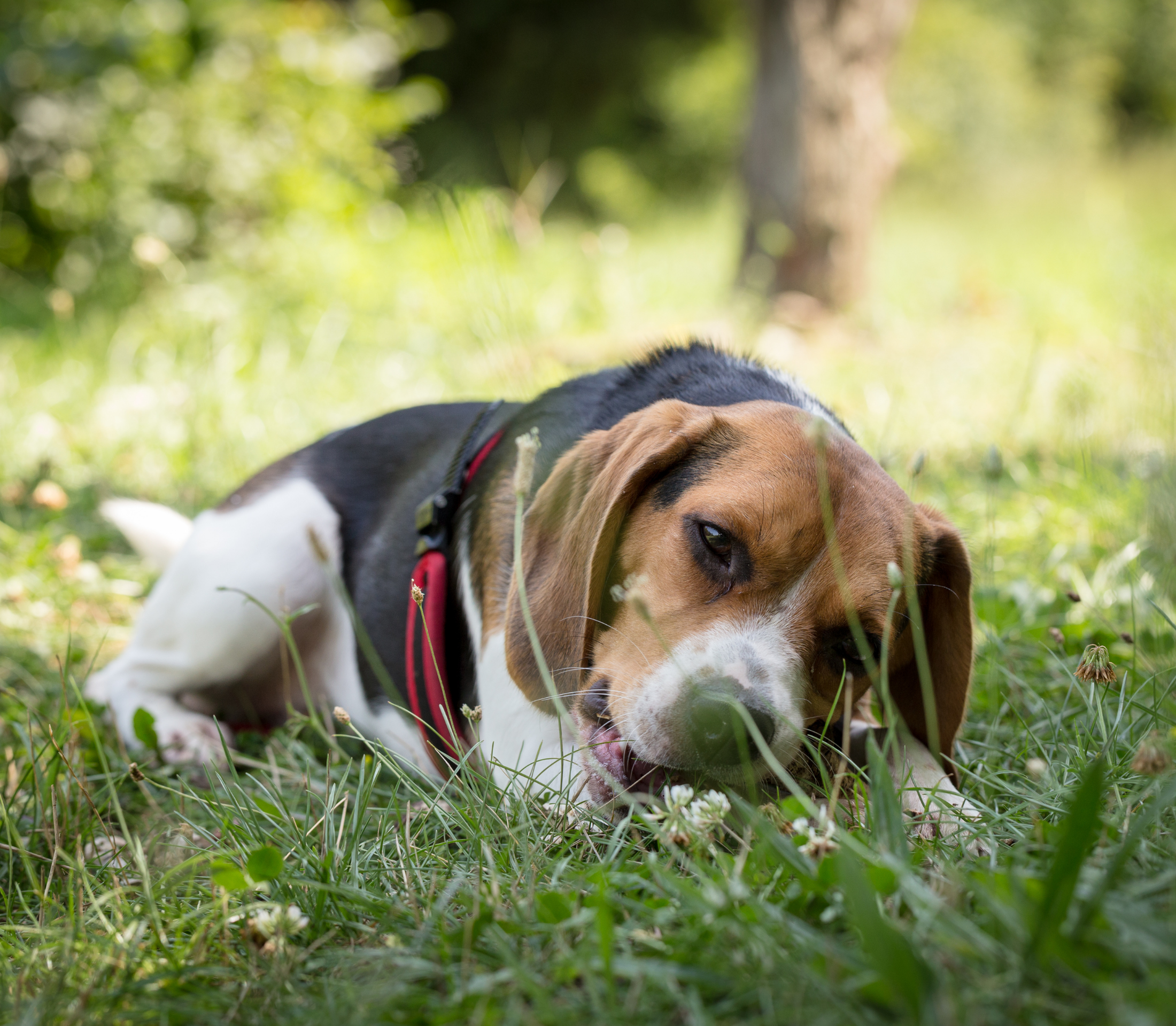Have you ever come home and found that your canine pal has eaten your shoes, or chewed up your sofa? This may go beyond Fido’s natural need to chew. There’s actually a specific name for this behavior: pica. The whats, whens, and whys of pica in dogs can vary widely. A local vet offers some information on it below.\
One of the most common forms of pica is eating grass. There are several possible reasons for this. Fido may be trying to soothe an upset stomach, or he may be trying to address a nutritional imbalance, which may have manifested as a craving. While most grass isn’t dangerous in and of itself, many plants are. Plus, a lawn that has been treated with chemicals or pesticides is definitely not safe for your pooch to eat. Your furry pal could also pick up parasites.
It isn’t usually going to be an emergency If Fido snacks on your lawn. Unfortunately, though, pica isn’t limited to grass. Our canine friends have been known to eat all sorts of things. Socks and underwear are two common items. Man’s Best Friend has also eaten rocks, nails, screws, toys, watches, batteries, and, of course, homework, to name just a few things. As one can imagine, these things are definitely not safe for your furry friend. Some can cause choking or intestinal damage or blockages. Others, such as batteries, are highly toxic. In some cases, dogs’ ‘snacks’ will pass out the usual way. However, some cases can become life-threatening, and require surgical intervention. Call your vet immediately if you know or suspect your dog has eaten something he shouldn’t have.
The first course of action in pups with pica is having Fido examined by a vet. It’s important to determine if your pooch has nutritional issues or health problems. Thyroid issues, diabetes, and malnutrition are a few possibilities. Your vet may recommend changing Fido’s diet, or putting him on medication and/or supplements.
It’s also important to realize that sometimes dogs engage in pica due to mental or emotional issues, such as stress, fear, or loneliness. Make sure Fido has suitable toys and playtime, and spend lots of quality time with him. Puppyproofing is also a must. Ask your vet for more information.
Do you have questions about your dog’s health or care? Contact us, your animal clinic, today.
